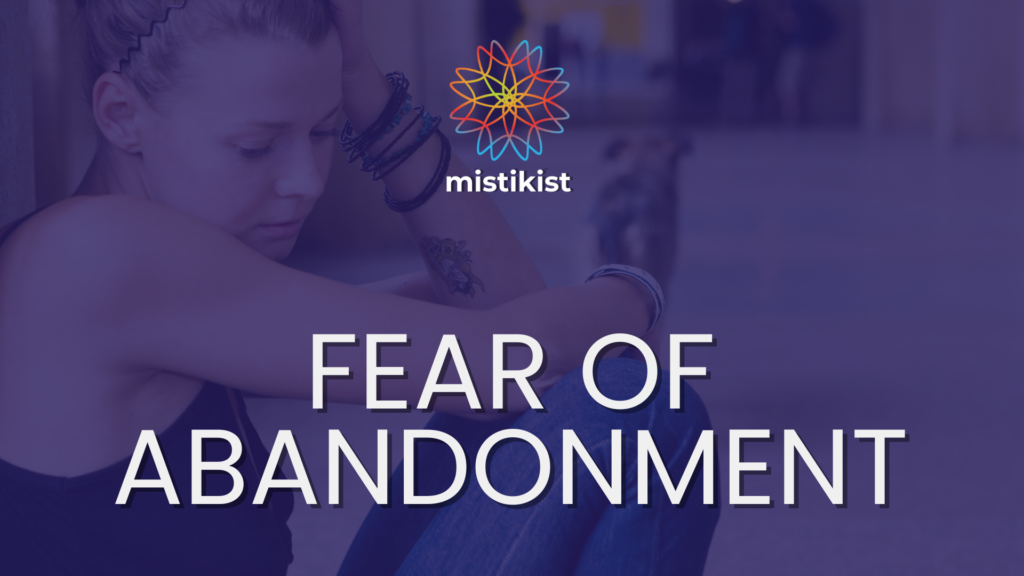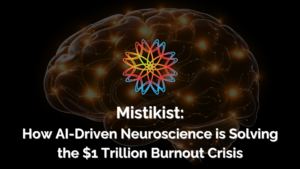Relationships are a fundamental part of our lives, offering companionship, love, and security. However, for those struggling with the fear of abandonment, relationships can also be a source of intense anxiety. This fear is the overwhelming belief that those we care about will leave us—whether physically or emotionally. While it’s not recognized as an official phobia, the fear of abandonment is one of the most common and damaging types of anxiety.
What Is the Fear of Abandonment?
The fear of abandonment is a deeply ingrained anxiety, often stemming from past experiences of loss, neglect, or trauma. It manifests as a constant worry that people we love will leave us, leading to behaviors that paradoxically push others away, thereby creating the very abandonment we dread.
This fear can affect anyone, but it is particularly prevalent among those with an anxious attachment style. This attachment style develops when early relationships with caregivers are marked by inconsistency, neglect, or trauma. The result is a deep-seated insecurity and a persistent fear that others will not be there when needed.
Symptoms of Fear of Abandonment
People with a fear of abandonment often exhibit a range of behaviors that can strain their relationships. Some common signs include:
- Quick Attachment: Rushing into relationships, even with unavailable partners, in a desperate attempt to secure love and attention.
- People-Pleasing: Engaging in behaviors aimed at pleasing others, even at the expense of one’s own well-being.
- Difficulty with Emotional Intimacy: Struggling to connect deeply with others due to fears of being hurt or rejected.
- Insecurity and Low Self-Esteem: Feeling unworthy of love and constantly doubting one’s value in relationships.
- Overthinking and Hypersensitivity: Overanalyzing interactions, looking for hidden meanings, and being overly sensitive to criticism.
- Separation Anxiety: Experiencing intense distress at the thought of being away from loved ones.
- Self-Blame and Repressed Anger: Frequently blaming oneself for relationship issues and harboring unresolved anger.
These symptoms can create a vicious cycle where the fear of abandonment leads to behaviors that drive others away, reinforcing the belief that abandonment is inevitable.
Causes of Fear of Abandonment
Understanding the root causes of this fear is crucial for healing. The fear of abandonment often originates from early life experiences, such as:
- Childhood Trauma: Experiences of abuse, neglect, or the loss of a loved one can leave deep emotional scars. Children who grow up without consistent affection, emotional connection, or a sense of safety may develop a fear of abandonment that persists into adulthood.
- Insecure Attachment: According to attachment theory, the way children bond with their caregivers influences their relationships later in life. Children who experience inconsistent or neglectful care may develop an anxious attachment style, leading to fears of abandonment.
- Object Constancy Issues: Object constancy is the understanding that relationships remain intact even when people are physically absent. Traumatic events, such as divorce or the death of a loved one, can disrupt the development of object constancy, leaving individuals with a heightened fear of abandonment.
- Philophobia: Some individuals develop a fear of love itself due to past experiences of betrayal, infidelity, or intense heartbreak. This fear can lead them to avoid relationships altogether, fearing the pain of potential abandonment.
The Impact of Fear of Abandonment
The fear of abandonment can have a profound impact on various aspects of life, particularly relationships. It often leads to a cycle of anxiety and self-sabotage:
- Getting to Know One Another: In the early stages of a relationship, individuals with abandonment issues may feel relatively secure. However, as emotional investment increases, so does their anxiety.
- Honeymoon Phase: During this phase, the fear of abandonment is often masked by the excitement of a new relationship. However, underlying insecurities may still be present.
- Real Relationship: As the relationship matures and real-life challenges arise, the fear of abandonment can intensify. Normal relationship stressors, such as work or family issues, may be perceived as signs of impending abandonment.
- The Slight: A minor incident, such as an unanswered text or a request for alone time, can trigger intense anxiety. The individual may interpret this as a sign that their partner is losing interest.
- Their Reaction: The response to these perceived slights varies. Some people may become clingy and demanding, while others might withdraw or attempt to preemptively end the relationship to avoid being hurt.
- Your Partner’s Reaction: The sudden change in behavior can confuse and alienate the partner, leading to further strain on the relationship. In some cases, this can result in the very abandonment that the individual feared.
Healing from the Fear of Abandonment
Overcoming the fear of abandonment is a challenging but achievable goal. Several therapeutic approaches can help individuals manage and reduce their anxiety:
- Cognitive Behavioral Therapy (CBT): This therapy focuses on identifying and changing negative thought patterns that contribute to anxiety. By replacing these thoughts with more positive and realistic ones, individuals can reduce their fear of abandonment.
- Attachment-Based Therapy: This approach emphasizes building a strong, trusting relationship between the therapist and the patient. Through this relationship, individuals can learn to develop healthier attachment styles.
- Behavioral Therapy: Through talk therapy, patients can uncover the origins of their behavior patterns and work towards healthier ways of relating to others.
- Self-Compassion: Practicing self-compassion is essential for overcoming the fear of abandonment. By treating oneself with kindness and understanding, individuals can begin to challenge their negative beliefs and build self-esteem.
Building a Sense of Belonging
In addition to therapy, cultivating a sense of belonging can be incredibly healing. Rather than relying on a single person to meet all emotional needs, individuals should focus on building a supportive community. Engaging in hobbies, joining clubs, and finding like-minded individuals can help create a network of support, reducing the intensity of abandonment fears.
Final Thoughts
The fear of abandonment is a powerful force that can wreak havoc on relationships and self-esteem. However, with the right strategies and support, it is possible to overcome this fear and build healthier, more fulfilling relationships. Whether through therapy, self-compassion, or community building, the journey towards healing is within reach.
If you or someone you know is struggling with the fear of abandonment, consider seeking help from a professional therapist who can provide guidance and support on the path to recovery. Remember, you are worthy of love and connection, and it is never too late to start healing.
For more information, visit our website and follow us on social media:
Learn more about Mistikist










